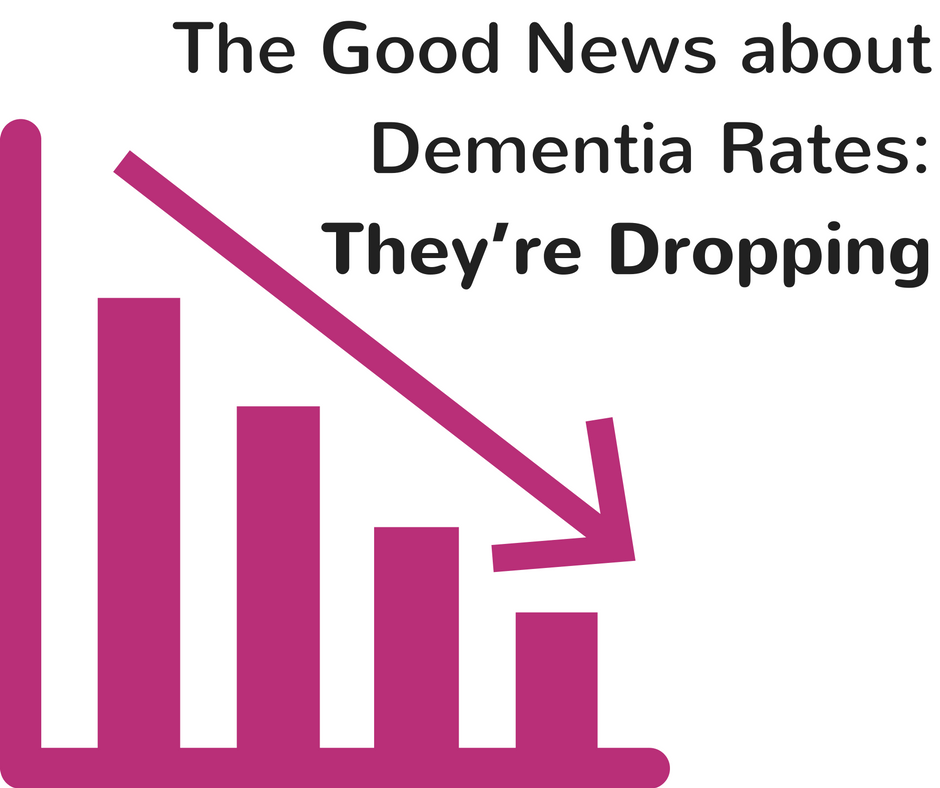The Good News about Dementia Rates: They’re  Dropping
Dropping
A new report finds that despite the rise in the number of seniors with chronic health problems, fewer seniors are developing dementia. Those who do are developing it at “older and older ages.” This is especially good news because it may offer clues about reducing dementia rates even more in the future.
Dementia rates are in decline
The percentage of adults 65 and older with dementia dropped from 11.6 percent in the year 2000 to 8.8 percent in 2012, according to data analysis published in the January 2017 issue of JAMA Internal Medicine. That analysis bolsters another reported released in 2016, which found that dementia rates dropped by a total of 44% since the late 1970s through 2008.
Any decrease in dementia rates is good news, not only for seniors and their families, but also for public health. Dementia is the most costly condition a person can face, because it can progress slowly over many years, during which patients require round-the-clock supervision to prevent wandering, falls, and distress. Caring for a loved one with dementia is more than a full-time job, and professional care is expensive. The Alzheimer’s Association says the total cost of caring for people with dementia in the US was $236 billion in 2016.
What the decline shows about reducing dementia
Researchers will be analyzing the data for some time to tease out what’s causing the drop in dementia rates. For now, medical experts are focused on two things: education and heart health. Researchers have found that seniors with more education are less likely to develop dementia than seniors who didn’t complete high school. Scientists think that’s because continued education enhances brain development and gives people some extra “cognitive reserve,” even years after their schooling is finished. This allows them to lose some cognitive function to aging without developing full-blown dementia, or without developing it as early as they would otherwise.
The biggest reason for the decline, doctors say, is better heart and circulatory health. Vascular dementias decreased the most in the study, and researchers say that’s because of better treatments for stroke, heart disease, and blood-vessel problems. Regular exercise can improve cardiovascular health at any age for most people, which may help stave off or reduce the severity of age-related cognitive decline. People who already have heart health issues or chronic conditions like diabetes should follow their treatment plans carefully to reduce their risk of dementia and other complications.
One thing researchers found that surprised many people is that overweight and obese study participants actually had a lower risk of dementia than others. It’s too soon to know what to make of this finding, because other studies connect excess weight with heart disease, which can raise dementia risk. Doctors who commented on the research for JAMA Internal Medicine suggested that extra weight late in life might offer some protection against cognitive decline.
You can learn more about Alzheimer’s disease on the SeniorAdvisor.com blog and find suggestions for choosing the best dementia-care community for your loved one at SeniorAdvisor.com.
